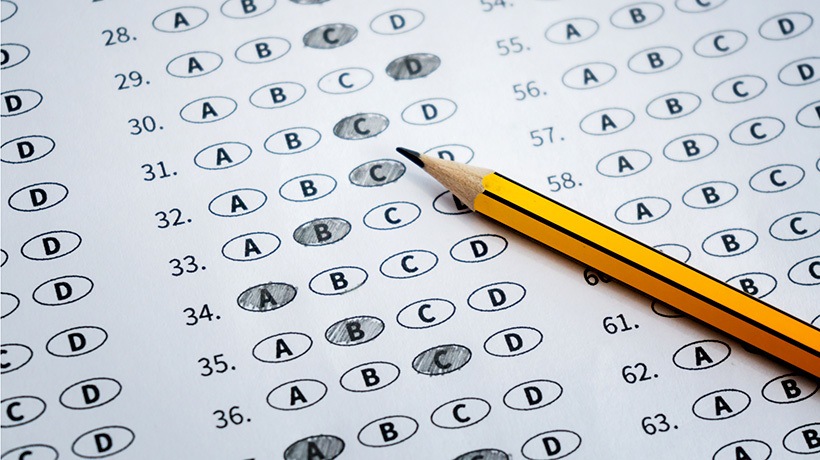What Happens If You Fail University?
Introduction
If you are currently struggling with your university life, we’re here to help. Maybe you’ve just seen your grades and realised you’re in the “failing university” club. First off, breathe. It’s tough, confusing, and emotionally draining, but I promise you, it’s not the end of the world.
Feeling like a complete disaster right now? You’re not alone. I know the lump in your throat feels like it’s never going to go away, and the paper in your hands might as well be a certified letter of doom. Whether you’re staring at your first F or have a transcript that feels like alphabet soup, we’ve got to talk about what happens next.
Is failing university the end of the world? Spoiler alert: No, it isn’t. In this post, we’re going to dissect what you’re going through and guide you through your options. We’re covering everything from the emotional hurricane you might be in right now to practical advice on what to do after failing university.
So, let’s get into it. Because, let’s be real, failing sucks, but it’s not your life sentence.
The Reality of Failing University
Failing First-Year Exams at University
Let’s start with one of the most gut-punching experiences—failing first-year exams at university. Ah yes, the first year. You’re fresh out of school, still trying to figure out how to do laundry and what a balanced diet looks like (spoiler: it’s not just instant noodles and energy drinks).
So, why do some of us find ourselves failing a year at university, especially the first one? Well, there are countless reasons. Maybe you underestimated the workload, got wrapped up in the freedom and social scene, or had personal issues that took your attention away from academics. Trust me, you’re not the first to stumble at this hurdle, and you won’t be the last. But hey, this can be a learning curve—a steep one, sure, but a curve nonetheless.
Failing Second Year at University
If you thought the first year was a wake-up call, the second year can be a full-on alarm bell, screaming at you from your bedside table. If you find yourself failing your second year at university, you’re deep enough into your program to realise this isn’t a drill. The classes are harder, the expectations higher, and you’re not a newbie anymore.
But before you label yourself as a failure, understand that a lot of people face a slump in their second year. It’s sometimes called the “sophomore slump,” and it’s a thing. Maybe you’ve lost interest in your course, or perhaps the modules are significantly tougher than you anticipated. Whatever the case, it’s a hurdle, not a wall. You can still get over it.
Failing Final Year University
Oh boy, here’s the one that really stings—failing final year university. You’re so close to the finish line that you can almost taste the champagne (or sparkling water if that’s your jam). Yet, here you are, tripping just before you could claim victory.
The reasons for stumbling this late in the game can be as simple as underestimating your final project or as complex as dealing with severe stress or personal issues. Perhaps the weight of the impending “real world” and job hunting has been messing with your study mojo. Whatever the cause, failing your final year can feel devastating.
However—and this is a big, however—you’ve got options. From retaking modules to considering postgrad as a recovery path, don’t box yourself in.
So, that’s the hard talk. Failing university isn’t an anomaly; it’s a rite of passage for some and a hard-earned lesson for others. Whether you’re in your first, second, or final year, there are paths forward. Stick around as we get into the nitty-gritty of how to pick yourself up, dust yourself off, and get back on that academic horse.

Emotional Impact of Failing University
Failing University and Its Link to Depression
There’s no getting around it—failing university feels like a gut punch to your self-esteem. You’ve invested so much time, energy, and let’s face it, emotional bandwidth, into pursuing a degree. So, when that “F” stares back at you from your results sheet, it can trigger a whirlpool of negative emotions, including depression.
Failing at academics can sometimes feel like failing at life, especially when you’re young and still defining your self-worth through achievements. This is a dangerous path and one that can quickly lead to failing university depression. Suddenly, you’re not just struggling with your courses; you’re also wrestling with your mental health.
How to Deal With Failing University Emotionally
So, what’s the game plan for how to deal with failing university on an emotional level? First, take a step back. Give yourself permission to feel your feelings—whether that’s sadness, frustration, or even relief. Feelings aren’t facts; they’re indicators of what you’re going through, not permanent states of being.
Seek Professional Help
If you find yourself spiralling, it may be helpful to speak to a mental health professional. Many universities offer free or low-cost counselling services, and therapists can provide coping mechanisms tailored to your situation. Trust me, talking it out helps.
Build a Support Network
Don’t underestimate the power of a solid support network, either. Reach out to friends, family, or even professors who can offer some much-needed perspective. Sometimes, talking to someone who’s been there, and done that can provide invaluable insights.
Mindfulness and Self-Care
Self-care is not just a buzzword; it’s essential. Mindfulness exercises like meditation can help you navigate the storm of emotions you might be feeling. Physical activity releases endorphins, which are natural mood lifters, so don’t skip exercise even when you’re feeling low.
Remember, you’re more than the sum of your grades or academic performance. Failing university is not the end of the world, although it might feel like it at the moment. It’s a chapter in your story, not the whole book. So turn the page and keep reading—better chapters are yet to come.
Stay tuned as we dive into the practical steps you can take to bounce back from this academic setback. 🎓

What Are Your Options?
Life doesn’t come with a rewind button, but your academic journey might offer something pretty close. Let’s face it; we all stumble at some point, but it’s all about how we pick ourselves up and carry on. So, you’ve faced the harsh reality of failing university—what are the routes you can take from here? Strap in; we’re about to explore some options that could put you back on the path to academic success.
Repeating a Year at University
Firstly, know that repeating a year is often an available option and it’s nothing to be ashamed of. Whether you had a rough start with your first-year exams or struggled later on, going for a do-over could be the second chance you need. You’ll need to speak to your academic advisor to work out the specifics, like which classes to retake and how it affects your study plan. But remember, this route offers a chance to improve not just your GPA but also your understanding of the subjects.
Taking a Gap Year
What if you’re feeling totally burned out and the thought of jumping back into another academic year makes you want to hide under your duvet forever? It might be time to consider taking a gap year. A gap year offers you the luxury of time—time to discover new interests, work, travel, or even just recharge your mental batteries. Universities are generally understanding about these life choices, so speak with your advisor about deferring your studies for a year.
Applying to Another University
Applying to Another University After Failing and Re-applying to University After Failing
If you feel like your current academic setting just isn’t the right fit, then transferring to a different university could be your best bet. You’ll get to start anew, probably with some valuable life lessons under your belt. When you re-apply, be honest but optimistic in your application; universities appreciate resilience and the ability to bounce back from adversity. Just scrutinize the transfer policies, as not all your credits may move with you.
Each of these options has its pros and cons, but they all offer a new beginning in their own way. The important thing is to choose the path that aligns with your personal and academic goals. It might take some time to get back on track, but hey, isn’t that what life (and university) is all about?
Success Stories
If you’re still feeling like a failure because of an academic set-back, here are stories that will let you clearly see that failure is simply a part of life and you can have a glorious comeback even if it currently feels like your world is crashing down. You may lose a battle but with the right mindset be sure about winning the war.
1. Steve Jobs
Though he didn’t fail, Steve Jobs dropped out of Reed College after just six months because of the financial strain it was putting on his family. He went on to co-found Apple Inc., one of the world’s most valuable companies.
2. Oprah Winfrey
Oprah faced numerous obstacles in her early life, including poverty and abuse. She received a scholarship to Tennessee State University but left before completing her degree to pursue media opportunities. Oprah became a media mogul and philanthropist, and she later received honorary degrees from several universities.
3. Bill Gates
He dropped out of Harvard University to co-found Microsoft with Paul Allen. Although Gates was doing well academically, he saw an opportunity in the software industry and took it. Today, he is one of the wealthiest people in the world and a significant philanthropist.
4. J.K. Rowling
Before she became the famous author of the Harry Potter series, Rowling faced numerous setbacks, including being on welfare. Her initial manuscript for Harry Potter was rejected by 12 publishing houses. However, she persevered, and her books are now international best-sellers that spawned a massively successful film franchise.
5. Albert Einstein
Known as one of the greatest physicists of all time, Einstein didn’t speak fluently until he was nine years old, leading his teachers to think he was slow. He was later expelled from school but went on to revolutionize our understanding of the universe.
Remember, while failing university can be a significant setback, it’s not the end of the world. Many people have turned around their academic and professional careers after such disappointments.
Conclusion
So, you’ve found yourself asking, “What do I do after failing university?” and wondering if this setback marks the end of the world. Well, let’s clear that up right now: it’s not. Though the emotional toll and stress can make it feel like you’re standing at the edge of an academic abyss, remember that everyone stumbles. What defines us is not the fall, but how we rise again.
Failing university is a tough pill to swallow, but it’s far from a life sentence of doom and gloom. Whether you’re thinking about repeating a year, taking a well-deserved gap year, or even transferring to another university, there are more paths leading forward than you might think. Each option comes with its own set of challenges and opportunities, but all of them are better than giving up.
If you feel like you need some extra support, Edumentors is the place to go. This online tutoring service can provide help with university coursework and study strategies for students that may be struggling. take steps forward and tackle your issues head on. Edumentors can assure strategic, individual help for you!
As you ponder your next steps, take solace in knowing that this too shall pass. This moment of failure could very well be the foundation of your future success. Believe it or not, you’ve got this.
For now, take a deep breath, gather your thoughts, and prepare to make your comeback. Your future self will thank you for it. 🌟
Thanks for sticking around for this heart-to-heart about navigating life’s academic hiccups. Keep an eye out for more tips and advice to help you ace your university journey. Remember, failing university isn’t the end of the world, it’s just a plot twist in your still-unfolding story.









